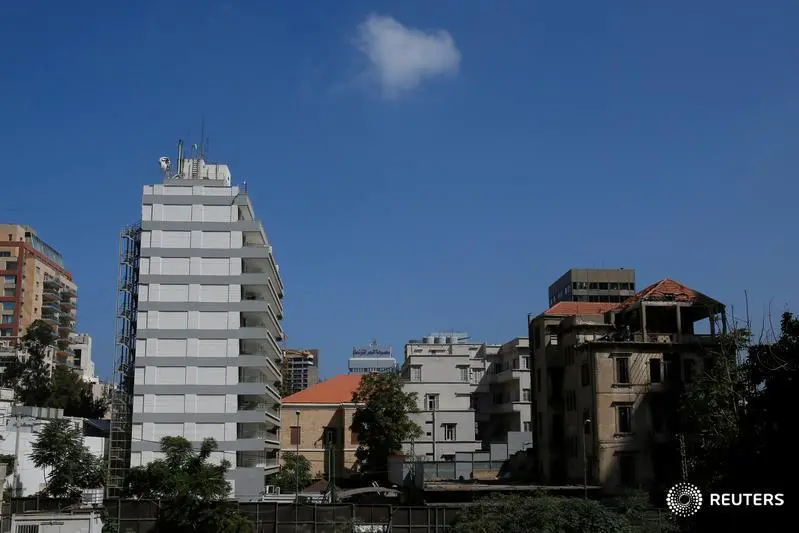PHOTO
BEIRUT: CEDRE donors have not given Lebanon a deadline to implement reforms tied to the more than $11 billion in funds pledged at the conference last year, the French envoy tasked with following up on the summit said Friday. There is no ultimatum on the part of the donors ... and the money is still there, Pierre Duquesne told a news conference that wrapped up a three-day trip to Lebanon, during which he met a number of top officials including Prime Minister Saad Hariri and Finance Minister Ali Hasan Khalil.
Although some donors are more skeptical than others [about Lebanons ability to complete the reforms] ... none have indicated that they will withdraw funds, he added.
Duquesne said he concluded from his meetings that Lebanon was ready for reforms and investments after the governments formation on Jan. 31, which came after more than eight months of political deadlock.
Government was formed a month ago, and the ministerial statement was approved, so lets take advantage of this moment, he said.
Donor countries at the CEDRE conference, which was held in Paris on April 6, pledged more than $11 billion in grants and soft loans to finance investment and infrastructure projects in Lebanon that can only be unlocked once Lebanons new Cabinet implements a series of reforms.
While Duquesne refuted recent reports in Lebanese media that France and its allies had given Lebanon a deadline of two months from the government formation to implement the initial CEDRE reforms, he said that it would be unfortunate to find that after two or three months work had not begun.
It is impossible to implement such reforms in a number of weeks. ... reforms must happen quickly, but not necessarily within two months, he continued.
In 2018, Lebanon presented a Capital Investment Program to the CEDRE donors, comprising 250 projects worth $16 billion across the electricity, water, sanitation, waste and industry sectors as well as cultural efforts.
Following his meeting with Hariri, Duquesne that there were two main types of reforms: sectoral reforms for the implementation of projects and more macro-economic, indispensable reforms.
The reduction of Lebanons deficit-to-GDP ratio by at least one percentage point per year - a goal included in the new Cabinets policy statement - was vital, Duquesne said. While he acknowledged this would
be a difficult task, he said it was not impossible. The budget deficit must be addressed, but not in a way that would break the economy, he added. In the policy statement, ministers agreed to enact financial and monetary policy reforms that would help reduce Lebanons debt-to-GDP ratio, which is among the highest in the world, at above 150 percent. This includes increasing the size of the economy and reducing the budget deficit.
The budget doesnt necessarily need to be finalized by the end of March ... as it is an almost surgical operation, Duquesne said, but the government does not have the luxury of time.
Lebanons draft budget for 2019 had been held up because of the 254-day Cabinet void. Now that the new government has gained confidence from Parliament, the budget is expected to be among the first issues ministers will discuss. The finance minister said last month that it would be sent to Parliament by the end of March.
But the French diplomat emphasized during his meeting with Khalil that the necessary reforms were not limited only to the budget, noting projects to be enacted in the telecommunications, aviation and energy sectors, which all have laws regulating them that have not implemented. How do you expect to convince investors from the public and private sectors to invest if they do not understand how sectors are organized? he said to reporters after the talks.
The state-run electricity company Electricite du Liban incurs a loss of around $1.5-2 billion annually, depending on oil prices, and fails to produce round-the-clock electricity.
The electricity sector is one of the sectors that require rapid reform, Duquesne said, as without 24/7 electricity, it is difficult to imagine investments in other sectors.
When it comes to telecoms, the Lebanese state currently runs a monopoly, owning both mobile service providers in the country whose work is contracted out to private firms: Touch is operated by Kuwaiti provider Zain, while Alfa is operated by Egypt-based Orascom Telecom Holdings. Together they account for the states second-largest source of revenue, after taxation.
The state also runs Lebanons sole fixed-line provider Ogero, which also manages vital portions of the countrys internet infrastructure.
State institutions, such as EDL, should create governing bodies to implement the necessary reforms and fight corruption, which Duquesne identified as a primary concern of donors.
According to a macroeconomic report by consulting firm McKinsey published in January, Lebanon ranks 146th out of 180 countries for corruption.
One way Lebanon can work to fight corruption, Duquesne suggested, is developing electronic administration to improve transparency.
Duquesne also met with Environment Minister Fadi Jreissati, who said that among the priorities of the CEDRE reforms were the electricity sector, water sanitation and solid waste management, according to the state-run National News Agency.
Jreissati told the French diplomat that steps were being taken within his ministry to protect Lebanons natural resources, find solutions to solid waste management and end the pollution of the Litani River.
Jreissati said Duquesne had expressed the international communitys commitment to following through on the funds pledged at CEDRE, so it is on us as a Cabinet to take responsibility as soon as possible.
Duquesnes home nation, France, was the biggest donor at the conference, pledging 400 million euros in soft loans and 150 million euros in grants.
During his three-day tour, Duquesne also met with representatives of Lebanons Central Bank, the World Bank, the UNDP, the EU and a number of other state and international institutions, as well as ambassadors of donor countries.
Copyright 2019, The Daily Star. All rights reserved. Provided by SyndiGate Media Inc. (Syndigate.info).





















